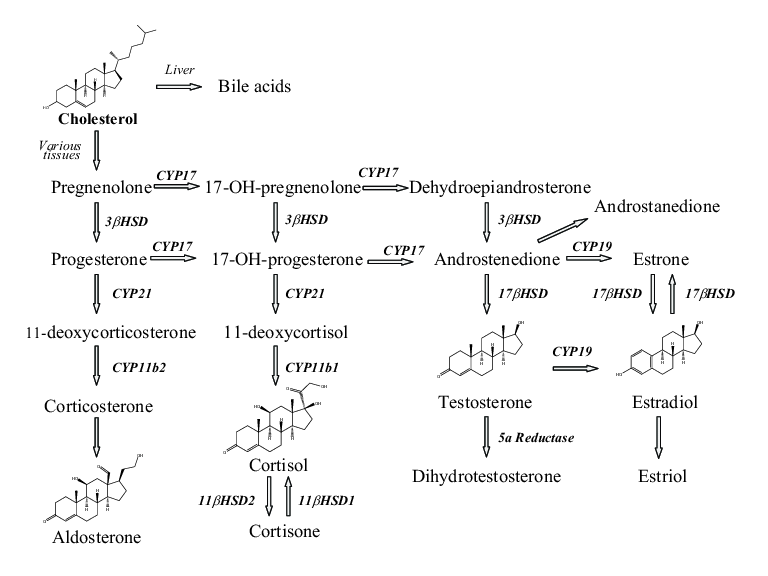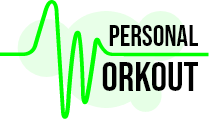The biggest risk factors for arteriosclerosis and cardiovascular diseases
Atherosclerosis is commonly known as “hardening of the arteries”. Strictly speaking, it is a chronic inflammatory process that leads to deposits (plaques) on the walls of the arteries, causing them to become less elastic. Atherosclerosis is the primary cause of cardiovascular disease. Up to 50% of all deaths can be attributed to it. Risk factors include physical inactivity and the use of addictive substances such as smoking and alcohol. Secondary diseases such as obesity, hypertension and diabetes, as well as genetic predisposition, are also important. However, foods or food groups have also been implicated in atherosclerosis. In this article, we explore this question and shed some light on it.
Are animal fats responsible for the development of atherosclerosis?
This has long been believed, and some health experts still consider the consumption of saturated fats, which are mainly found in animal products, to be one of the main reasons for the development of arteriosclerosis. It’s like spinach and iron, or eating eggs and cholesterol. These are statements that persist and are the result of comma errors or poor studies. More and more meta-analyses come to a completely different conclusion:
According to this study:
“Coronary artery disease pathogenesis and treatment urgently requires a paradigm shift. Despite popular belief among doctors and the public, the conceptual model of dietary saturated fat clogging a pipe is just plain wrong. A landmark systematic review and meta-analysis of observational studies showed no association between saturated fat consumption and (1) all-cause mortality, (2) coronary heart disease (CHD), (3) CHD mortality, (4) ischaemic stroke or (5) type 2 diabetes in healthy adults. Similarly in the secondary prevention of CHD there is no benefit from reduced fat, including saturated fat, on myocardial infarction, cardiovascular or all-cause mortality. It is instructive to note that in an angiographic study of postmenopausal women with CHD, greater intake of saturated fat was associated with less progression of atherosclerosis whereas carbohydrate and polyunsaturated fat intake were associated with greater progression”.
Malhotra A, Redberg RF, Meier PSaturated fat does not clog the arteries: coronary heart disease is a chronic inflammatory condition, the risk of which can be effectively reduced from healthy lifestyle interventions British Journal of Sports Medicine 2017;51:1111-1112.
It also states that a Mediterranean diet with 41% fat and 4 tablespoons of olive oil or a handful of nuts could reduce cardiovascular incidents by 30% in high-risk patients. It also stresses the importance of exercise and stress management.
I highly recommend reading this report as well. In a nutshell, it says Saturated fatty acids are part of a healthy diet, and countless meta-analyses and systematic reviews have failed to establish a causal relationship between a reduction in saturated fatty acids and a reduction in cardiovascular disease. Quite the opposite—again, it says:
«Further, saturated fat has been shown in some cases to have an inverse relationship with obesity-related type 2 diabetes.»
Gershuni, V.M. Saturated Fat: Part of a Healthy Diet. Curr Nutr Rep 7, 85–96 (2018). https://doi.org/10.1007/s13668-018-0238-x
And much more importantly:
«Rather than focusing on a single nutrient, the overall diet quality and elimination of processed foods, including simple carbohydrates, would likely do more to improve CVD and overall health.»
Gershuni, V.M. Saturated Fat: Part of a Healthy Diet. Curr Nutr Rep 7, 85–96 (2018). https://doi.org/10.1007/s13668-018-0238-x
Acetylcholine protects the arteries
The April 23rd Edubily newsletter, an excellent resource for a holistic view of nutrition and supplements, cites the following study by Tarnawski et al. (2023) on acetylcholine and vascular health. The researchers conclude that “T cells that produce acetylcholine have a protective effect on blood vessels by releasing increased nitric oxide (NO). This, in turn, improves blood flow and oxygen transport.”
Acetylcholine is one of the most important neurotransmitters for mental performance, energy (it is also responsible for muscle contraction), and the ability to concentrate (learning).
It gets interesting when you look at the foods with the highest amounts of choline. These are eggs (yolk), meat (especially liver), and fish. Choline is also found in several vegetables and nuts.
Calcium and its role in the development of atherosclerosis
In his masterpiece, Cu-RE Your Fatigue (p. 160), Morley M. Robbins describes exactly why calcium supplementation for osteoporosis, as practiced by doctors today, does not work. Calcium absorption requires magnesium in a 1:1 ratio, which is the ratio of the two minerals in natural products. However, since most calcium supplements contain twice as much calcium as magnesium, the excess calcium can be deposited in the arteries and lead to atherosclerosis. Reid and Bolland have demonstrated this in a number of studies.
Iron and its role in the development of atherosclerosis
Morley M. Robbins Cu-RE Your Fatigue (p. 218) also explains the connection between atherosclerosis and iron. It states:
«It is not Cholesterol that causes heart disease, but the lipid peroxidation (“rusting”) of cholesterol, which is caused entirely by increased dietary iron in the grains due to iron fortification programs began in 1941 in the UK, Canada, and the United States.»
Robbins, M., Cu-RE Your Fatigue: The Root Cause and How To Fix It On Your Own, 2021, ISBN 9781662910296, https://books.google.ch/books?id=U7lLEAAAQBAJ, Gatekeeper Press
So it is not cholesterol per se that is problematic, but the oxidation of lipids. This is also stated in Wikipedia:
«Unter Lipidperoxidation versteht man die oxidative Degradation von Lipiden. Bei diesem Prozess gibt ein Lipid Elektronen an reaktive Radikale ab. Die dadurch in Gang gesetzte radikalische Kettenreaktion kann bei Lipiden in der Zellmembran zur Zellschädigung führen. Bei Low-Density Lipoprotein (einem Lipoprotein, das Lipide im Blut transportiert) kommt es zu oxidativen Modifikationen, die über die Entstehung von Schaumzellen zu Arteriosklerose führen.»
https://de.wikipedia.org/wiki/Atherosklerose
This study also explains this relationship. Iron is important, but ‘too much’ leads to ROS (reactive oxygen species) and is therefore involved in the pathogenesis of atherosclerosis. Read more about “What your doctor won’t tell you if you’re diagnosed with anemia and why it’s probably not iron deficiency” and “Why it’s healthy to donate blood”.
What does a healthy diet and lifestyle look like for our arteries to PREVENT ARTERIOSCLEROSIS?
We know a lot—but we think we know everything. Many processes are too complex to understand in detail. The cholesterol example above is meant to illustrate this. Is cholesterol “bad” or is it the oxidation of LDL in the presence of iron, which together with oxygen leads to “rust” and atherosclerosis? When you consider that cholesterol is THE starting material for ALL sex hormones and glucose and mineral corticoids, the answer is obvious to us.

We advocate a balanced diet where everything is allowed. The majority of products should be unprocessed and therefore natural, like those of our ancestors. The Ancestral or Paleo Diet fits best with this philosophy. So if we consider sausages or cold cuts like salami to be a source of “unhealthy” animal fats, then we agree 100%.
If this means that we should avoid extremely healthy products such as organic beef fillet from grass-fed animals, venison or chicken breast from free-range chickens (all of which contain hardly any fat anyway), then this does not fit with current studies and is hardly conducive to health. Bon appetit!
SOURCES
- https://bjsm.bmj.com/content/51/15/1111.long
- https://web.fedepalma.org/sites/default/files/files/SaturatedFat_Part_of_a_Healthy_Diet.pdf
- https://edubily.de/
- https://www.pnas.org/doi/10.1073/pnas.2212476120
- https://books.google.ch/books/about/Cu_RE_Your_Fatigue_The_Root_Cause_and_Ho.html?id=U7lLEAAAQBAJ&redir_esc=y
- https://pubmed.ncbi.nlm.nih.gov/34421089/
- https://de.wikipedia.org/wiki/Atherosklerose
- https://www.researchgate.net/figure/Biosynthesis-of-steroid-hormones-in-the-cholesterol-pathway_fig2_265287715
- https://www.nutritiondiagnostics.com.au/blog/ancestral-diet-what-is-it-and-what-are-the-benefits/
- https://www.ncbi.nlm.nih.gov/books/NBK507799/
Challenge of the Month
What Clients Say





















